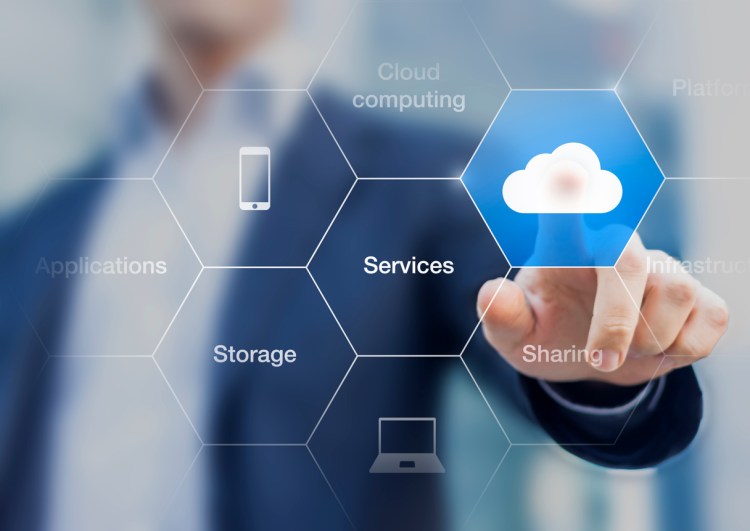What is the cloud?

Image provided by OTELCO.
In today’s technology driven world you hear about “the Cloud” constantly. The cloud, or cloud computing, is the practice of using a network of remote servers hosted on the Internet to store, manage, and process data, rather than a local server or a personal computer.
Working with the cloud is great for small businesses because it allows you to save space in your network, access your work from anywhere and keep your data is safe.
Cloud Computing
There are four main types of cloud computing, and they each have something unique to offer you and your small business:
Backup as a Service (BaaS)
BaaS is a way to safely store all of your companies digital data, by backing it up to remote servers. These servers are located in offsite data centers that are climate controlled, with alternate power supplies and 24/7/365 system monitoring. At this point, every business owner should be backing up their company’s data.
Between natural disasters, cyber-crime, and human error it is almost guaranteed that at one point or another your business’s digital infrastructure will be compromised. When that happens, every second you can’t access your data will cost you. With BaaS, you will have an efficient and secure way to restore your data: saving you money, time and peace of mind.
Software as a Service (SaaS)
SaaS is a software distribution model in which a third-party provider hosts applications and makes them available to customers over the Internet. Today, most major software companies are transitioning to the SaaS. In fact, it is more than likely that you are already using a SaaS tool.
All-in-one business solution products, such as Office365, or Google’s G-Suite, are the perfect SaaS tool for small business. For one monthly price, you are provided with every digital tool you will need to run a successful company. They include:
• Business Email Solutions
• File Sharing and Collaboration Software
• Productivity Tools (such as word processors, slideshow builders, and spreadsheets)
• Calendar Coordination
• Unified Communication Software
Cloud faxing is another nifty SaaS tool. SaaS faxing solutions, such as Classifax, allow you to send and receive faxes over the Internet. SFax is another great faxing solution, designed for businesses that need to be HIPPA compliant. Some other popular SaaS products are QuickBooks, Paylocity, and Salesforce.
Infrastructure as a Service (IaaS)
IaaS provides access to computing resources in a cloud-based environment. IaaS allows you to work off of a virtual infrastructure that is located on the cloud and accessed through the web. You can store data, download software, and work off the virtual desktop just as you would local infrastructure.
IaaS is a great tool for companies with telecommuters or “bring your own device” policies because it offers a secure platform that can be accessed on any Internet connected device. It’s also a great tool for companies with lots of sensitive data. For example, medical offices and healthcare analytics companies will often use specialized Virtual Desktop software to better meet strict HIPPA guidelines.
Platform as a Service (PaaS)
PaaS is a service delivery model that allows a customer to rent virtualized servers and associated services used to run existing applications, or to design, develop, test, deploy, and host applications. Most PaaS tools are geared to software development and are largely unnecessary to other small businesses.
PaaS solutions provide compute and storage infrastructure, text editing, version management, compile and testing services. These tools are great because they allow developers to focus on their product, without having to worry about maintaining their infrastructure.
More Technology Tips for Small Businesses
If you are interested in learning more about the technology shaping today’s business world, download OTELCO’s Tech-Tips Guide. It is full of helpful information on the strategies, devices, and applications that will bring your small business to the next level.
DOWNLOAD YOUR FREE BUSINESS TECHNOLOGY GUIDE
Send questions/comments to the editors.


